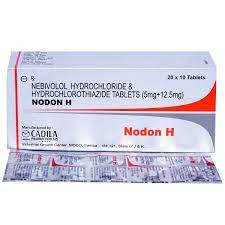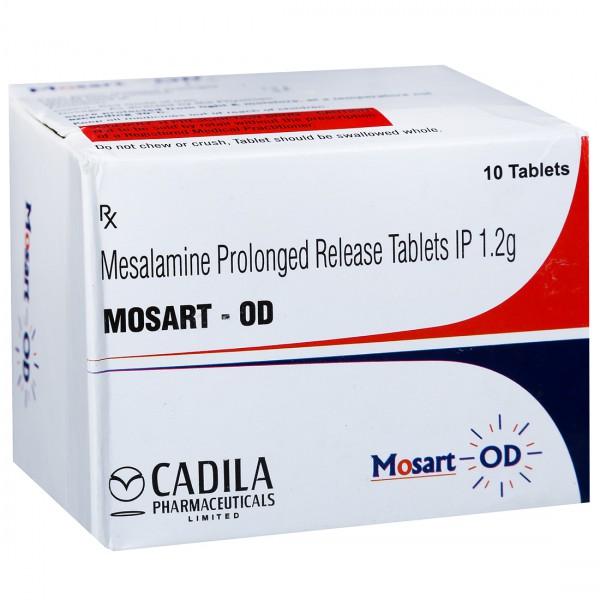aciban PANTOPRAZOLE
Introduction to aciban
Aciban is a medication primarily used to treat conditions related to excessive stomach acid. It is commonly prescribed for issues like gastroesophageal reflux disease (GERD), stomach ulcers, and other acid-related disorders. Aciban helps in reducing the amount of acid produced in the stomach, providing relief from symptoms and promoting healing.
Composition of aciban
The active ingredient in Aciban is Pantoprazole, which belongs to a class of drugs known as proton pump inhibitors (PPIs). These medications work by blocking the proton pumps in the stomach lining, thereby reducing acid production.
Uses of aciban
- Treatment of gastroesophageal reflux disease (GERD)
- Healing of stomach ulcers
- Prevention of damage to the esophagus from acid reflux
- Management of Zollinger-Ellison syndrome, a condition causing excessive stomach acid
Side effects of aciban
Common side effects:
- Headache
- Diarrhea or constipation
- Nausea
- Flatulence (gas)
- Abdominal pain
Serious side effects:
- Bone fractures
- Kidney issues
- Low magnesium levels
- Vitamin B12 deficiency with long-term use
- Increased risk of Clostridium difficile infection in the colon
Precautions of aciban
Before taking Aciban, inform your doctor if you have any allergies to Pantoprazole or other PPIs. Use with caution if you have severe liver problems, and consult your healthcare provider if you are taking HIV medications like atazanavir, as Aciban may interfere with their effectiveness.
How to Take aciban
- Take Aciban as prescribed by your healthcare provider.
- The usual dose for GERD or acid reflux is 40 mg once daily, typically for 4-8 weeks.
- For Zollinger-Ellison syndrome, the dose may be higher and tailored by your doctor.
- Swallow the tablet whole with a glass of water, preferably in the morning before a meal.
Conclusion of aciban
Aciban is an effective medication for managing conditions related to excessive stomach acid. By reducing acid production, it helps alleviate symptoms and promotes healing. However, it is important to follow your healthcare provider's instructions and be aware of potential side effects and precautions. Always consult your doctor if you have any concerns or experience any adverse effects while taking Aciban.


Can I take Aciban with other prescription drugs?
Aciban can interact with certain medications, which may increase the risk of adverse effects or reduce its effectiveness. For example, it can affect the absorption of drugs like ketoconazole, which is an antifungal medication, and atazanavir, which is used to treat HIV. Aciban may also interact with blood thinners like warfarin, increasing the risk of bleeding. Always inform your doctor about all the medications you're taking to avoid potential interactions. Your doctor can adjust your treatment plan to ensure safety and effectiveness.

Can Aciban be taken safely while breastfeeding?
Aciban is generally considered safe to use while breastfeeding. It is not known to be excreted into breast milk in significant amounts. There are no reports of adverse effects on breastfed infants. However, it's always best to consult your doctor before taking any medication while breastfeeding. They can provide personalized advice based on your specific situation and help ensure the safety of both you and your baby.

Can Aciban be taken safely while pregnant?
Aciban is generally considered safe during pregnancy, but it's important to consult your doctor. Limited studies in pregnant women suggest that Aciban doesn't pose a significant risk to the fetus. However, the absolute safety of most medicines during pregnancy can't be guaranteed. Your doctor will weigh the benefits and risks before prescribing Aciban. If you're pregnant or planning to become pregnant, discuss your treatment options with your doctor to ensure the best outcome for you and your baby.

Does Aciban affect appetite?
Aciban doesn't typically affect your appetite. Most people taking this medication don't notice changes in how hungry they feel or how much they want to eat. If you notice any unexpected changes in your appetite after starting Aciban, talk with your doctor about these changes. For mild appetite changes, try maintaining regular meal times and eating a balanced diet while taking your medication. Your doctor can help determine if any appetite changes you experience are related to Aciban or if there might be another cause.

Does Aciban affect mood?
Aciban doesn't typically cause mood changes or mental health effects. Most people take this medication without experiencing anxiety, agitation, or mood swings. If you notice changes in your mood or mental well-being after starting Aciban, talk with your doctor. These symptoms might be related to something else, like stress or another health condition, rather than the medication itself. Your doctor can help determine what's causing any mental health changes you experience and suggest appropriate support while continuing your treatment.

Does Aciban affect sleep?
Aciban doesn't typically cause sleep problems. Most people take this medication without experiencing any changes in their sleep patterns. Sleep disturbances aren't listed as a known side effect of Aciban in the medication information. If you notice changes in how well you sleep after starting this medication, talk with your doctor. Sleep problems might be related to something else, like another medication you're taking or a different health condition. Your doctor can help figure out what's causing your sleep issues and suggest ways to improve your rest while continuing your treatment.

Does Aciban cause headaches?
Headaches are an occasional side effect of Aciban. Most people take this medication without experiencing headaches. If you do get mild headaches, staying hydrated and resting may help. Over-the-counter pain relievers can also be used after consulting with your doctor. If you experience severe or persistent headaches, it's important to talk with your healthcare provider. They can help determine if Aciban is the cause or if there's another underlying issue that needs attention.

Does Aciban cause stomach upset?
Aciban can occasionally cause stomach upset, including nausea, vomiting, or diarrhea. These gastrointestinal side effects are generally mild and affect a small percentage of users. If you experience mild nausea, taking Aciban with food might help. Most people take Aciban without significant stomach issues. However, if you develop severe or persistent stomach problems, talk with your doctor. They can help determine if these symptoms are related to Aciban or if there might be another cause.

Does Aciban cause weight gain?
Aciban doesn't typically affect body weight. Most people take this medication without experiencing weight changes. If you notice unexpected weight loss or gain while taking Aciban, talk with your doctor. These changes might be related to another cause, such as a change in diet or another health condition. Your doctor can help determine if Aciban is related to any weight changes and suggest appropriate solutions. Maintaining a balanced diet and regular exercise can help manage your weight while on this medication.

Does Aciban interfere with sexual function?
Aciban doesn't typically interfere with sexual function. Most people take this medication without experiencing changes in sexual health, such as erectile dysfunction or loss of libido. These side effects are not commonly associated with Aciban. If you notice any changes in your sexual function while taking this medication, it's important to talk with your doctor. They can help determine if these changes are related to Aciban or if there might be another cause. Your doctor can also suggest ways to manage any mild or moderate sexual health side effects you experience.

Does Aciban limit driving?
Aciban doesn't typically impair your ability to drive. Most people take this medication without experiencing side effects like dizziness or drowsiness. However, if you notice any symptoms that could affect your driving, such as feeling light-headed, avoid driving until these symptoms go away. When you first start taking Aciban, pay attention to how your body responds before getting behind the wheel. Talk with your doctor if you have concerns about driving while taking this medication.

Does Aciban make it hard to think or concentrate?
Aciban doesn't typically cause cognitive side effects like difficulty concentrating or thinking. Most people take this medication without experiencing changes in mental focus or memory. If you notice problems with your thinking after starting Aciban, talk with your doctor. These symptoms might be related to something else, such as stress or another health condition. Your doctor can help determine what's causing these issues and suggest solutions while keeping your treatment plan on track.

Does Aciban make people tired or drowsy?
Aciban doesn't typically cause tiredness or drowsiness. Most people take this medication without feeling unusually fatigued. If you notice you're feeling very sleepy or fatigued while taking Aciban, talk with your doctor. Your tiredness might be caused by something else, like another medication you're taking, or an underlying health condition. Your doctor can help determine what's causing your symptoms and recommend appropriate adjustments to your treatment plan. Proper rest, regular physical activity, and a balanced diet can help maintain your energy levels while taking any medication.

For how long do I take Aciban?
Aciban is often used for short-term treatment of conditions like GERD, which is gastroesophageal reflux disease, or stomach ulcers. The usual duration of use is 4 to 8 weeks, but your doctor may adjust this based on your specific condition and response to treatment. For some chronic conditions, Aciban may be used long-term. Always follow your doctor's instructions regarding the duration of use. Stopping Aciban without medical advice could cause your symptoms to return or worsen.

How does Aciban work?
Aciban works by blocking the proton pumps in your stomach, which are responsible for producing acid. Think of it like turning down the volume on a loudspeaker. By reducing acid production, Aciban helps relieve symptoms like heartburn and allows the esophagus and stomach lining to heal. This medication is effective for treating conditions like GERD, which is gastroesophageal reflux disease, and stomach ulcers. By controlling stomach acid, Aciban helps prevent further damage and promotes healing.

How do I know if Aciban is working?
Aciban is used to treat conditions like GERD, which is gastroesophageal reflux disease, and stomach ulcers. You'll know Aciban is working when you experience relief from symptoms like heartburn and acid reflux. Your doctor may also monitor your condition through endoscopy, which is a procedure to view your esophagus and stomach, or other tests to ensure healing. Regular check-ups with your doctor are important to see if the medication is working properly for your condition. Your doctor may adjust your treatment based on these test results and how you're feeling.

How do I take Aciban?
Aciban is usually taken once daily, typically in the morning. You can take it with or without food. Swallow the tablet whole; do not crush or chew it. If you miss a dose, take it as soon as you remember unless it's almost time for your next dose. In that case, skip the missed dose and continue with your regular schedule. Do not take two doses at once. There are no specific dietary restrictions, but always follow your doctor's advice regarding diet and fluid intake while on Aciban.

How long does it take for Aciban to start working?
Aciban starts working within a few hours of taking it, but it may take a few days to feel the full effect. For conditions like GERD, which is gastroesophageal reflux disease, you might notice symptom relief within a few days, but it can take up to a week for significant improvement. The full therapeutic effect for healing ulcers may take several weeks. Individual factors like age, overall health, and the severity of your condition can affect how quickly Aciban works. Take it exactly as prescribed for the best results.

How should I store Aciban?
Store Aciban at room temperature, away from moisture and light. Keep it in a tightly closed container to protect it from damage. Avoid storing it in humid places like bathrooms, as moisture can affect how well the medication works. If your pills came in packaging that isn't child-resistant, transfer them to a container that children can't easily open. Always store Aciban out of children's reach to prevent accidental swallowing. Check the expiration date regularly and properly dispose of any unused or expired medication.

Is it safe to drink alcohol while taking Aciban?
It's generally safe to drink alcohol in moderation while taking Aciban. However, alcohol can irritate your stomach lining and worsen symptoms like heartburn or acid reflux. If you choose to drink, do so in moderation and be mindful of how your body reacts. If you notice any worsening of your symptoms, it might be best to avoid alcohol. Always talk with your doctor about alcohol use while taking Aciban to get personalized advice based on your specific health situation.

Is it safe to drink coffee or tea while taking Aciban?
You can drink coffee and tea while taking Aciban, but be mindful of your symptoms. Caffeinated beverages can increase stomach acid production, which might worsen symptoms like heartburn or acid reflux. If you notice that coffee or tea aggravates your symptoms, try reducing your intake or switching to decaffeinated options. It's important to listen to your body and adjust your diet accordingly. Talk with your doctor if you have concerns about caffeine consumption while taking Aciban.

Is it safe to exercise while taking Aciban?
It's safe to exercise while taking Aciban. This medication doesn't typically limit exercise capacity. However, if you experience symptoms like heartburn or acid reflux during physical activity, you might want to avoid strenuous activities or high-impact sports. Listen to your body and adjust your exercise routine as needed. Staying hydrated and eating smaller meals before exercising can help manage symptoms. If you have concerns about exercising while taking Aciban, talk with your doctor for personalized advice.

Is Aciban effective?
Aciban is effective for treating conditions like GERD, which is gastroesophageal reflux disease, and stomach ulcers. It works by reducing the amount of acid your stomach makes, which helps relieve symptoms like heartburn and prevents damage to the esophagus. Clinical studies show that Aciban significantly improves symptoms and promotes healing in people with acid-related conditions. It's important to take Aciban as prescribed by your doctor to achieve the best results. Regular follow-ups with your doctor can help monitor your progress and adjust treatment if needed.

Is Aciban safe for the elderly?
Aciban is generally safe for the elderly, but they may be more vulnerable to certain side effects. Older adults are at a higher risk for bone fractures and vitamin B12 deficiency with long-term use. It's important for elderly patients to have regular check-ups to monitor for these risks. Your doctor may adjust the dose based on your overall health and kidney function. Always follow your doctor's advice and report any unusual symptoms while taking Aciban.

What are Aciban possible harms and risks?
- Common side effects include:
- Headache
- Diarrhea or constipation
- Nausea
- Flatulence
- Abdominal pain
- Serious side effects (less common) include:
- Bone fractures (long-term use)
- Kidney issues
- Low magnesium levels
- Vitamin B12 deficiency (with long-term use)
- Clostridium difficile infection (increased risk in the colon)

What disease or symptom is Aciban used for?
Aciban is used to treat conditions like GERD, which is gastroesophageal reflux disease, and stomach ulcers. It helps reduce stomach acid production, relieving symptoms like heartburn and preventing damage to the esophagus. Aciban is also used for Zollinger-Ellison syndrome, which is a condition where the stomach produces too much acid. This medication can be used alone or in combination with other therapies to effectively manage these conditions and promote healing.

What is Aciban?
Aciban is a medication that belongs to a class called proton pump inhibitors, which reduce stomach acid production. It's primarily used to treat conditions like GERD, which is gastroesophageal reflux disease, and stomach ulcers. By lowering stomach acid, Aciban helps relieve symptoms like heartburn and prevents damage to the esophagus. It can also be used to treat Zollinger-Ellison syndrome, which is a condition where the stomach produces too much acid. Aciban is often used in combination with other therapies for comprehensive treatment.

What is the usual dose of Aciban?
The usual starting dose of Aciban for adults is 40 mg once daily. This dose can be adjusted based on your specific condition and response to treatment. For certain conditions, your doctor may recommend a higher dose or a different dosing schedule. Aciban is generally not recommended for children unless specifically prescribed by a doctor. Elderly patients may require dose adjustments based on their overall health and kidney function. Always follow your doctor's dosing instructions for your personal health needs.

Who should avoid taking Aciban?
Don't take Aciban if you're allergic to it or its ingredients. Serious allergic reactions, which cause rash, hives, or swelling that makes breathing difficult, require immediate medical help. Aciban should be used with caution in people with severe liver problems, as it may affect liver function. Always inform your doctor about your medical history and any other medications you're taking. This helps ensure Aciban is safe and effective for you.
Available in 3 variations

Aciban 40mg Injection
vial of 10 ml Injection

Aciban 20 Tablet
strip of 10 tablets

Aciban 40 Tablet 10s
strip of 10 tablets













.svg)
